Facing Cancer With Costumes
How dressing up helped one patient through her breast cancer journey and brought joy to others.
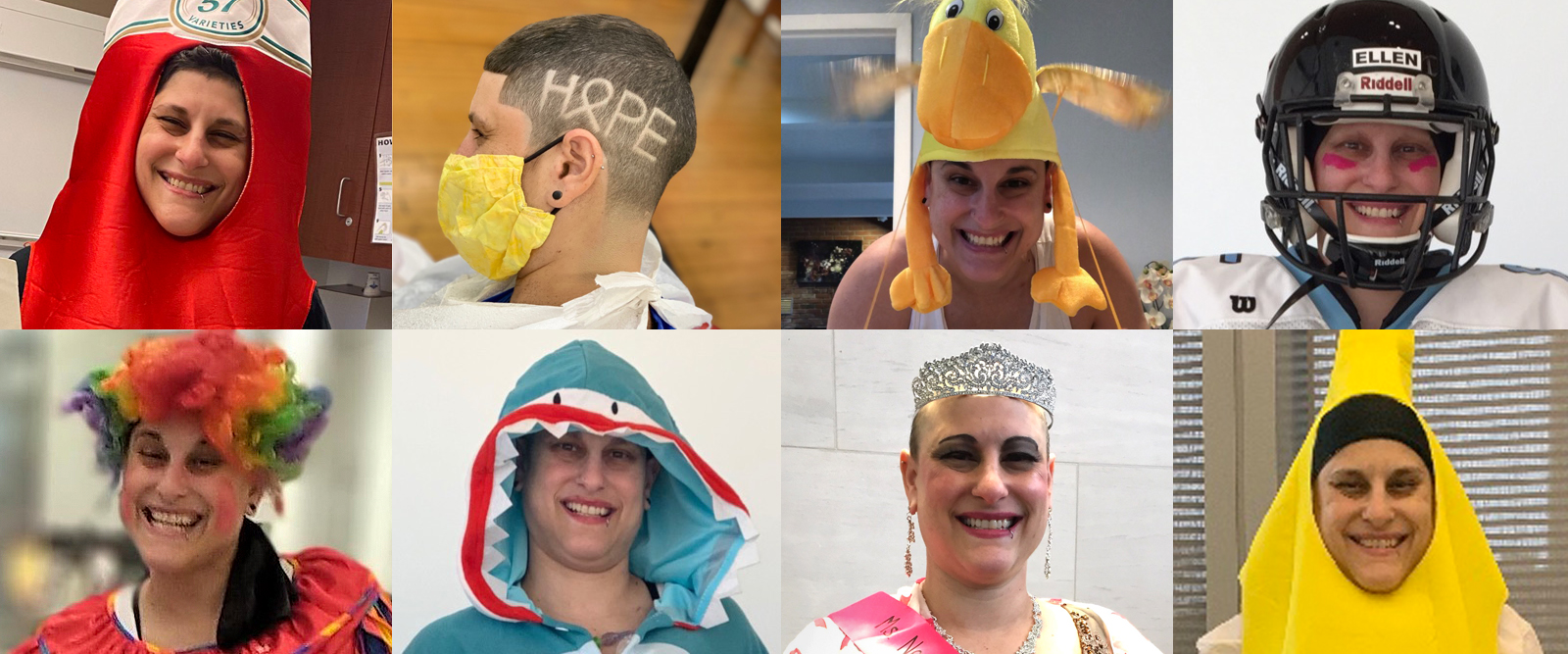

Before heading to the hospital for one of her first breast cancer treatments, Ellen Fields opened her dresser drawer and pulled out a pink tutu. “Why not?” she thought.
“There’s no script for how to act when you get sick,” says Ellen, who was diagnosed with stage 3 breast cancer in August 2019. “I figured if I have to spend months putting my life on pause to get this lifesaving medicine, I might as well make it as fun as possible.”
So the now 47-year-old Brooklyn resident decided to dress up in capes and crowns as she underwent chemotherapy at NewYork-Presbyterian David H. Koch Center.
Fortunately, Ellen had an abundance of costumes to choose from — most of them in a costume bin at the school where she works as a social worker, running an anti-violence, anti-bullying, peer leadership program.
The costumes, including a hamburger and a hockey player, had the bonus of making other patients laugh. “One day when I was wearing a silly costume, someone was there on their first day, which can be overwhelming,” she says. “The person who was initially crying burst into laughter and started cracking up reading the sign.”
Her many costumes also brought joy to hospital staff, who looked forward to Ellen’s visits. “Ellen is such a special person,” says Dr. Jennifer Marti, a breast surgeon at NewYork-Presbyterian/Weill Cornell Medical Center. “What’s so great about her is that despite her struggles, she shifted her focus to how other people are feeling. I found that so inspirational — to be thinking about lifting up her fellow human beings when she was going through so much.”
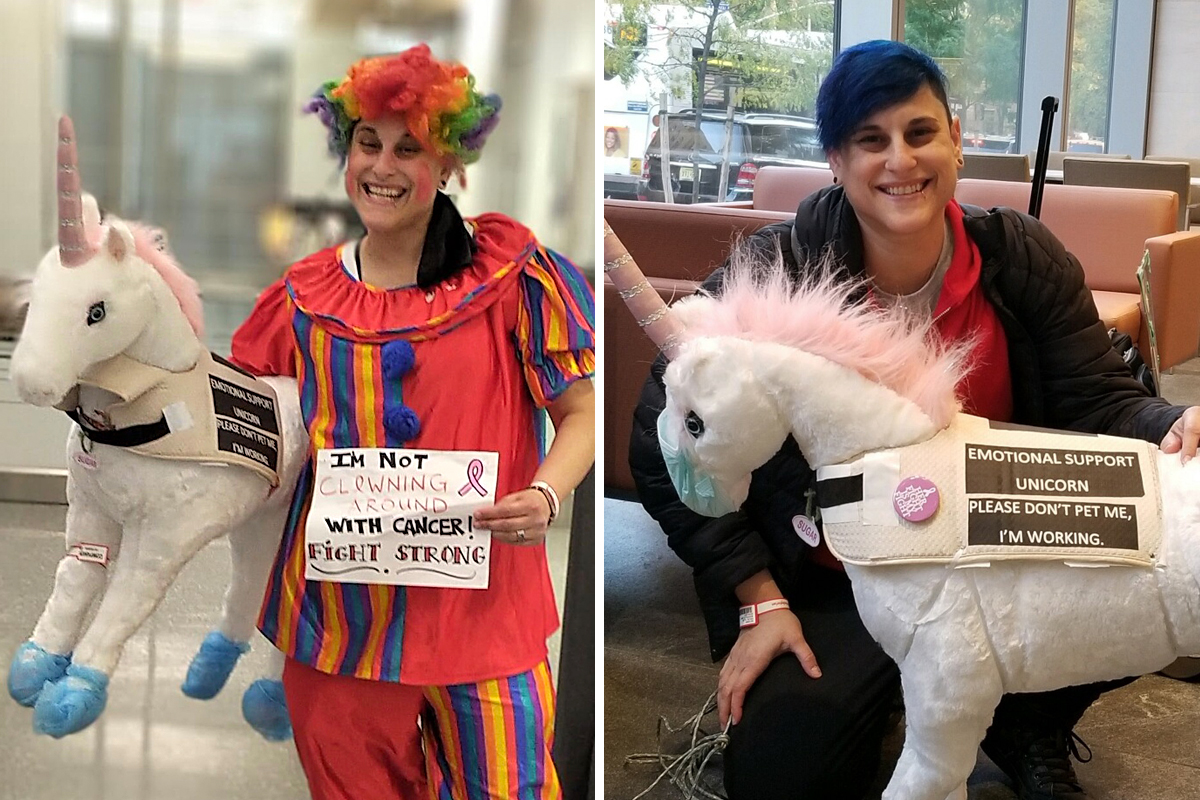
Ellen showed the world she was not clowning around about cancer. Ellen posing with Sugar (right), her beloved “emotional support unicorn.”
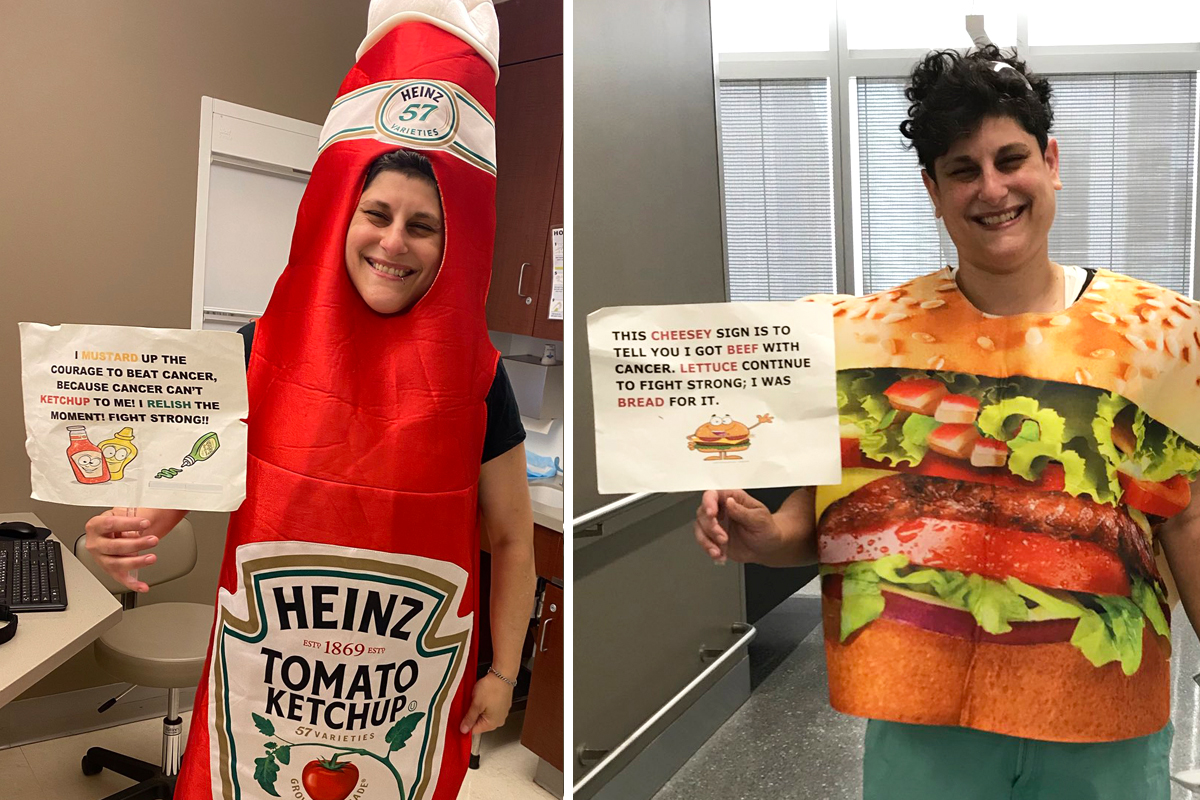
Ellen created many funny signs with the help of her nieces, including one that read: “This cheesy sign is to tell you I got beef with cancer.”
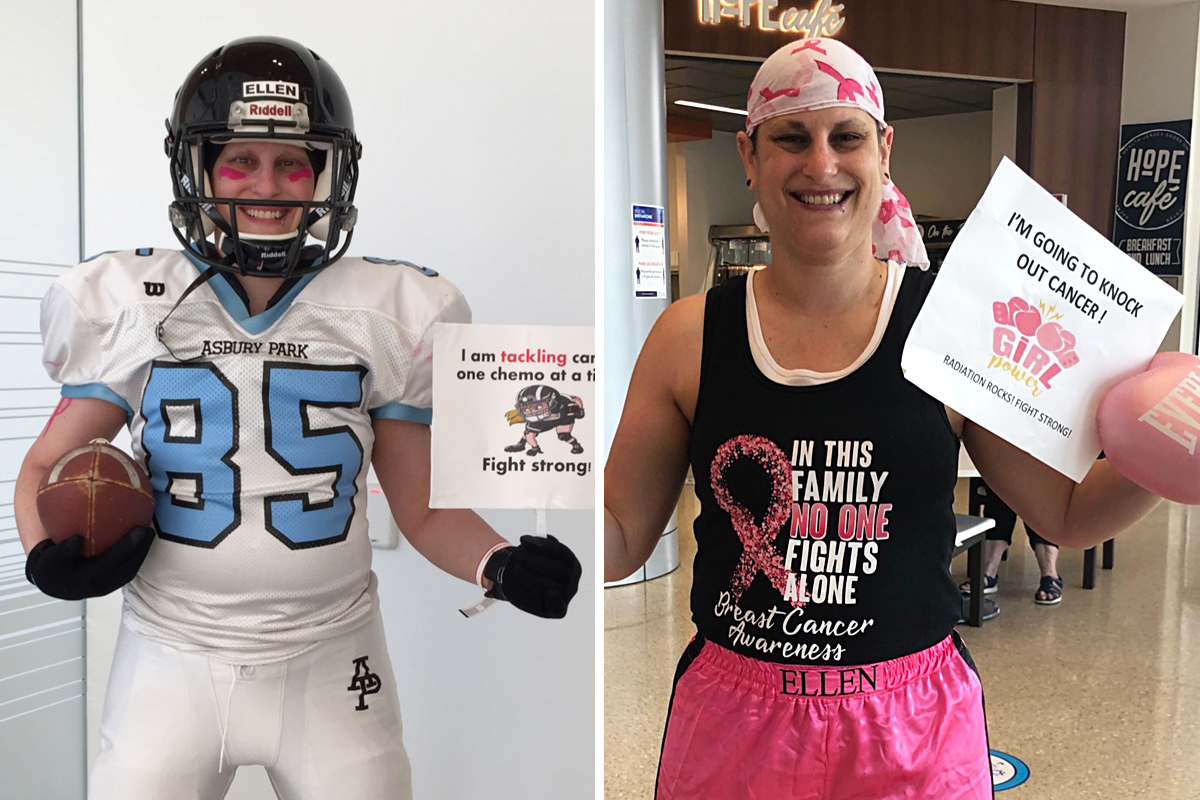
For Ellen, each treatment was an opportunity to inspire and motivate other patients to fight strong.
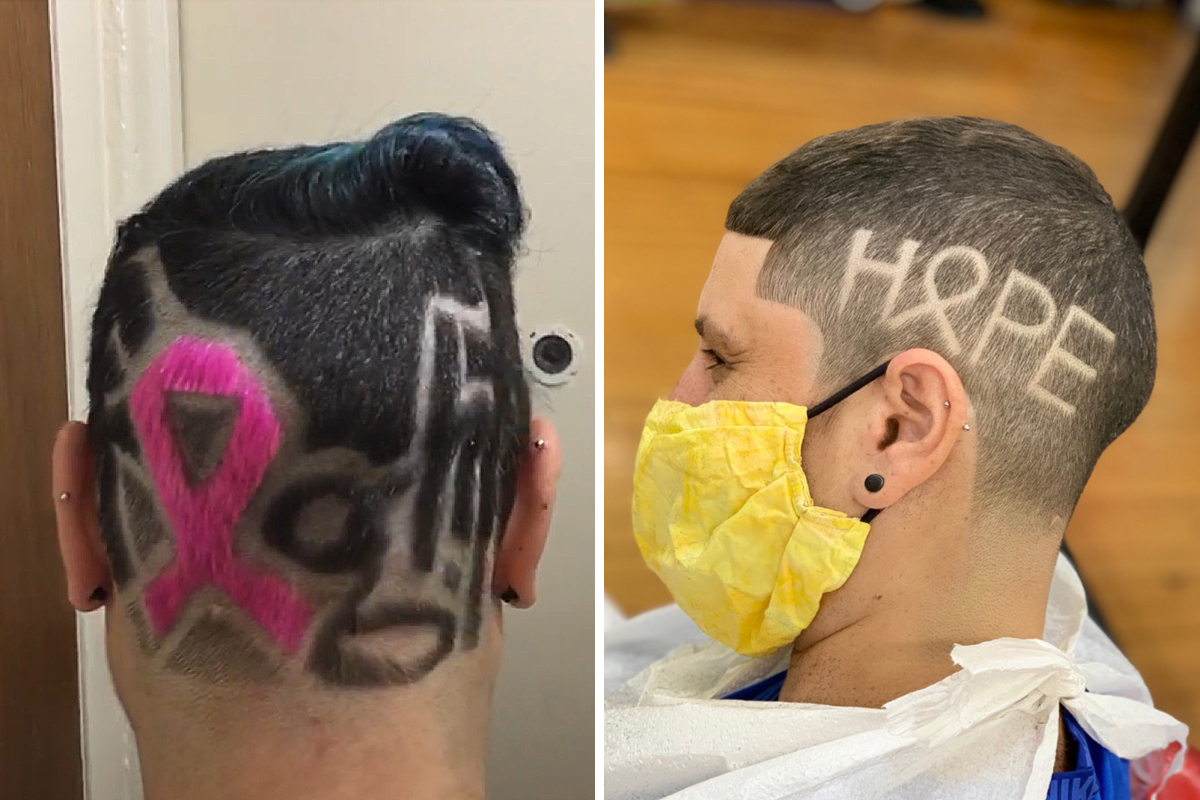
Ellen enlisted her niece to add inspirational messages to her changing hairstyles.
Coming up with costume ideas also served as a way to get her whole family involved, including her young nieces, who wanted to be as much a part of Ellen’s journey as possible. A few days before each treatment, they would brainstorm what the next costume would be and come up with a witty phrase to include on a sign.
Among her favorites was the ketchup costume, which included a sign that read, “I mustard up the courage to beat cancer, because cancer can’t ketchup to me! I relish the moment! Fight strong!”
When Ellen started losing her already blue hair, she enlisted the help of one niece to add inspirational designs such as hope and fight. “For the children who are watching the changes caused by chemo, it can be very scary and upsetting,” she says, “so it’s important to keep them involved in the process.”
Ellen and her nieces also created care packages filled with comfortable socks, calendars, bracelets with positive messages, and other items that fellow breast cancer patients could use during treatment. These were distributed at NewYork-Presbyterian David H. Koch Center in memory of Ellen’s beloved father, who passed away from cancer prior to her diagnosis. “I believe it’s very important for both the patient and the family, especially children, to do things together to help the patient try to heal.”
Throughout the course of her treatment Ellen would also bring Sugar, her youngest niece’s sparkly stuffed unicorn, so that she and other patients could get some added support from her “emotional support unicorn.”
Ellen celebrated her last chemo in March 2020, around the same time that the pandemic hit New York City. To commemorate her last session, she appropriately dressed up as Ms. NewYork-Presbyterian/Weill Cornell, gracing the hallways in head-to-toe pageant garb.
Today, she is done with chemo and the radiation that followed, and she will continue taking tamoxifen orally at home for the next five to 10 years. This has allowed her to resume work and continue spending quality time with her family.
Ellen hopes that her experience wearing costumes to chemo will take off, and that patients at other hospitals around the world will throw on a Superwoman cape to feel empowered throughout their journey.
Says Ellen: “You’re going through something so horrible — throw the cape on! It may make you feel better.”


